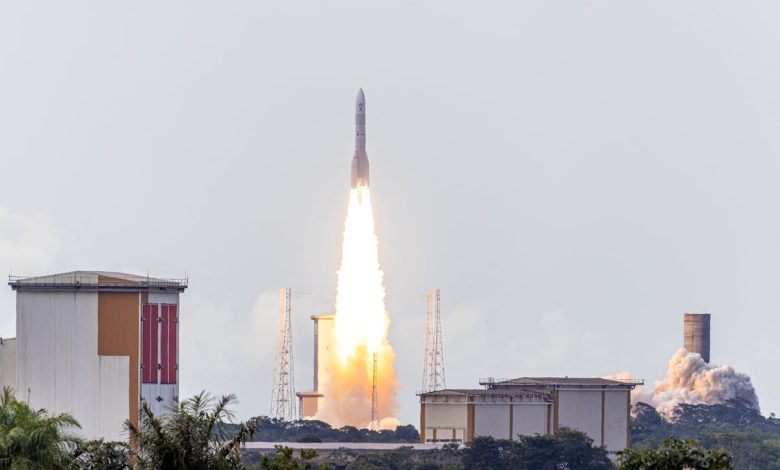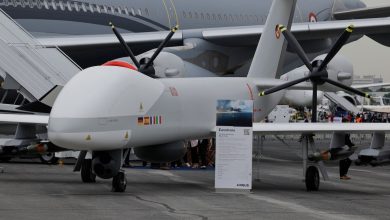Europe picks consortium for sovereign satellite constellation IRIS²

PARIS — The European Commission picked a consortium led by SES, Eutelsat and Hispasat to deploy the IRIS² satellite constellation, as the European Union seeks its own satellite broadband system to ensure the bloc isn’t reliant on foreign entities such as Elon Musk’s Starlink.
The parties will sign a 12-year concession contract by December, the Commission said in a statement on Thursday. Core subcontractors for the contract, which envisages more than 290 satellites in multiple orbits, include Thales Alenia Space, Airbus Space and Defence, Italy’s Telespazio and Thales SIX.
Militaries have jumped on the possibilities offered by SpaceX’s Starlink, the first large satellite constellation to use low Earth orbit to deliver broadband Internet, raising concerns of dependency on a private company that could potentially deactivate a critical service. The U.S. Air Force relies on Starlink for command and control, while Ukraine uses the service to guide drones and for battlefield communications.
“IRIS² is an essential pillar of our resilience,” European Parliament member Christophe Grudler, who sits on the legislature’s industry committee, said in a post on X on Thursday. “We need it fast.”
The EU is counting on IRIS² as a sovereign alternative to the likes of Starlink, Amazon’s Kuiper or U.K.-based OneWeb. Global satellite connectivity is fast becoming a strategic asset for security, safety and resilience, and the EU needs to urgently ensure guaranteed and unrestricted access that doesn’t rely on a third party, according to Commission.
Under the contract, the SpaceRISE consortium will provide governmental services by 2030, while also enabling commercial services. IRIS² will be used for government functions including border and maritime surveillance, secure communications for embassies and for military missions, according to the Commission.
“This milestone represents a crucial step towards establishing a secure, resilient, and autonomous communications infrastructure for Europe,” the consortium said in a joint statement, adding that full operational status is targeted for the early 2030s.
The new timetable pushes IRIS² back by several years compared to the timeline presented by the EU in March last year, which envisaged first deployment as early as the end of 2024 and full service in 2027.
IRIS² will include satellites in low Earth orbit, or LEO, which allow for low latency connections, as wall as in medium Earth orbit, which can cover a larger part of the globe. The EU is counting on the system to provide broadband coverage in areas in Europe that currently lack service, as well as in the Arctic region.
The cost of the constellation is estimated at €10.6 billion, or $11.6 billion, French financial newspaper Les Echos reported, without saying where it got the information. The concession contract will be funded by public money as well as private investment by the consortium.
The EU announced €2.4 billion in funding for IRIS² last year, including €1.65 billion through to the end of 2027. Additional European funding may be awarded after 2027, subject among other things to the European Parliament and member states adopting a successor program, the Commission said.
German Economy Minister Robert Habeck in March called for a delay of IRIS² to rethink the program, writing to the Commission to complain about the proposed €12 billion budget, and the division of the work between France and Germany, Handelsblatt reported in April.
The EU already operates the Galileo navigation satellite system, as well as the Copernicus Earth-observation program.
Rudy Ruitenberg is a Europe correspondent for Defense News. He started his career at Bloomberg News and has experience reporting on technology, commodity markets and politics.
Read the full article here






